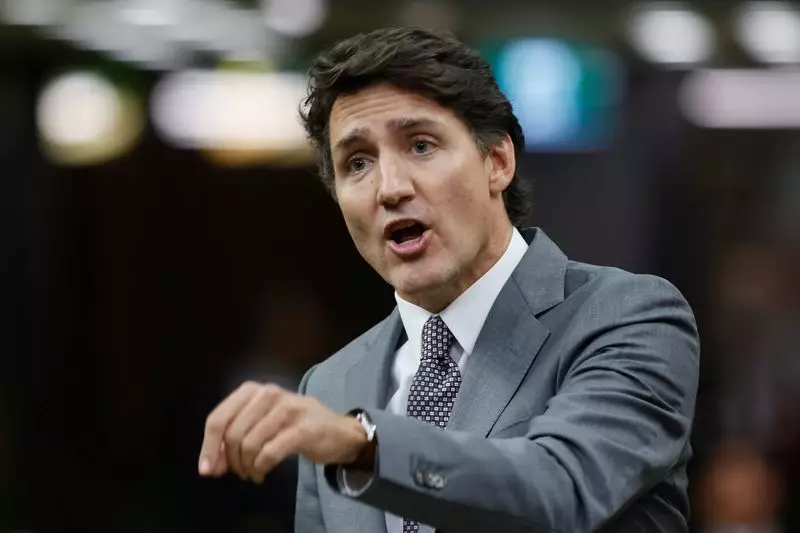The current political climate in Canada presents a moment of introspection for the ruling Liberal Party, led by Prime Minister Justin Trudeau. Facing plummeting approval ratings and inadequacy in recent elections, the party seems to be at a crossroads. In particular, a special election in the LaSalle–Émard–Verdun constituency has intensified conversations about the leadership of Trudeau and the future trajectory of the party as they encounter a formidable challenge from the Conservative opposition.
The recent special election called to fill a seat vacated by a Liberal MP has drawn significant attention, particularly as it embodies what appears to be a deteriorating stronghold for Trudeau’s party. Traditionally seen as a constituency securely in the Liberal camp, emerging polls suggest an alarming tightness in voter preferences, with rivals closing in fast. Commentary suggests that a loss in this area would not simply be a dent in the party’s confidence but a clarion call for reevaluating leadership strategies and possibly initiating a leadership race.
The stakes are pronounced. If the Liberals were to lose this seat, it would amplify the chorus of dissenting voices within the party calling for a leadership change. There’s palpable discontent amongst some lawmakers, one of whom, Alexandra Mendes, openly expressed her constituents’ frustrations about Trudeau’s relevance as a leader, highlighting an accelerated desire for new representation.
The growing dissatisfaction among the electorate is marked by concerns over high living costs and a concerning housing crisis that continue to plague Canadians. Recent comments from Trudeau himself suggest an acknowledgment of the public’s struggle, yet he maintains a posture that frames these issues as external obstacles rather than failures of his administration. The anger and frustrations of Canadian citizens could serve as a barometer in the upcoming elections, challenging the Liberal narrative and Trudeau’s hold on leadership.
Moreover, recent electoral outcomes, particularly a loss in a previously safe Toronto seat, have brought concerns about Trudeau’s viability as the leader of the party into sharper focus. As polls increasingly show the favor of voters tilting en masse toward Conservative leader Pierre Poilievre, who enjoys an impressive 45% support rate, Trudeau’s position is becoming perilous. Comparisons drawn from the last general election highlight a staggering decline for the Liberals, who are now grappling with the gravitas of a disenchanted voter base.
With the Conservatives thriving amid the discontent directed at the Liberals, Poilievre’s campaign promises—which include eliminating the federal carbon tax and restricting immigration until housing infrastructure can keep pace—seem to resonate with a significant portion of the populace. His approach is not merely political; it capitalizes on the very real frustrations felt by everyday Canadians. This is accentuated by his explicit critique of Trudeau’s governance, painting the Prime Minister as disconnected from the struggles facing the country.
The Liberal strategy to counter this shift involves portraying Poilievre as aligned with far-right ideologies reminiscent of former U.S. President Donald Trump. While this tactic may bolster party unity in the face of external threats, it is inherently risky and could potentially backfire if voters perceive it as avoidance rather than engagement with pressing issues.
As the Liberal Party braces itself for potential upheaval in the face of increasing opposition, the pertinent question remains: will Justin Trudeau weather this political storm, or will the mounting pressures culminate in a significant overhaul of the party’s leadership? The internal discontent and mixed public sentiments reflect a broader struggle—not just for Trudeau but for the identity of the Liberal Party itself.
Through these challenges, the lesson appears clear: maintaining governance amid dissatisfaction requires not only strategic messaging but also authentic engagement with the constituents’ needs and aspirations. Whether Trudeau can reassure his critics and retain his position amidst such strife will ultimately shape the direction of Canadian politics in the coming years.

